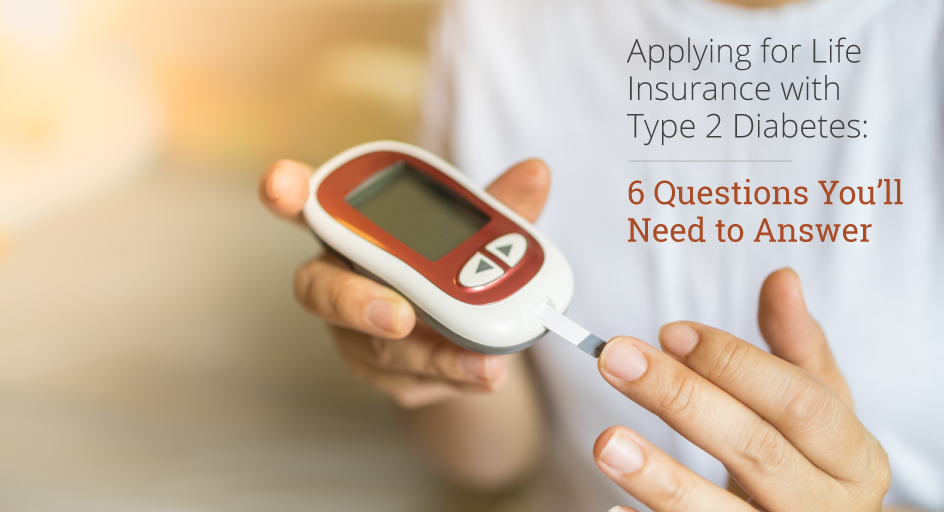
According to the American Diabetes Association and the Centers for Disease Control and Prevention, individuals with type 2 diabetes spend 50 percent more on prescription drugs than individuals without and have a 50 percent greater likelihood of death. In turn, life insurance premiums can be significantly impacted by a diabetes diagnosis. However, while it’s true an insurance underwriter is going to have to gauge whether you’re a risk, that doesn’t mean you’re destined to pay unreasonable rates. Pre-existing conditions do affect life insurance eligibility, but with the help of your insurance provider, it’s possible to strategize for securing an affordable policy that benefits your family in all the ways you hope. As you prepare to select a plan with your provider, consider that you’ll need to answer the following six questions as you fill out your application.
- When were you diagnosed? The younger you were when you were first diagnosed with type 2 diabetes, the more of a problem the disease may pose to securing a life insurance policy you are happy with. Life insurance underwriters tend to prefer you received your diagnosis after age 40.
- What medications do you take for your diabetes? You should be prepared to tell your potential insurer whether you need prescriptions to treat your diabetes, the names and dosage of each medication, and how often you take it.
- Is your diabetes currently under control? Insurers will want to know whether you are managing your type 2 diabetes well. An ideal fasting blood sugar level on the date of your medical exam, for example, is 135 or less. Underwriters also prefer A1C at or below 7.0. These are not numbers you can achieve within 30 days of your date of application, however. Industry specialists recommend working hard to maintain ideal numbers for 90 days before your required medical exam. This means physical activity, dietary changes, achieving a healthy weight, and managing medications as needed.
- What details should we know about your family medical history? Besides indicating which family members also have diabetes, you’ll want to disclose issues your parents, siblings, and grandparents have had with cardiovascular health, depression, anxiety, hypertension, cancer, sleep apnea, or stroke.
- What other medical conditions do you manage, whether related or unrelated to your diabetes? Whether current or in the past, these conditions may include the ones mentioned above as well as neuropathy, elevated lipids, or coronary artery disease.
- Have you used tobacco products within the last 12 months? Keep in mind here that it’s best to tell the truth. While insurance rates for smokers are higher than insurance rates for nonsmokers, blood tests from a medical exam or results from an autopsy after your death will reveal a hidden habit. You don’t want an insurance company to reject a payout to loved ones after it’s too late for you to adjust your application. Also, know that you can always update your smoking status to non-smoker once you’ve been smoke-free for a year or more.
Should your diabetes and related health concerns result in difficulty obtaining eligibility for a traditional life insurance policy, you aren’t completely out of luck. You can still purchase a no exam life insurance plan, which means the requirement for a medical exam is waived. The benefit here is that you achieve coverage quickly, rather than having to wait for appointments and review of results, and you may find that a no exam life insurance policy can cover you up to $50,000. You can also ask your insurance provider to talk to you about burial insurance, which would give your loved ones financial assistance toward funeral and burial costs in the time of their mourning.